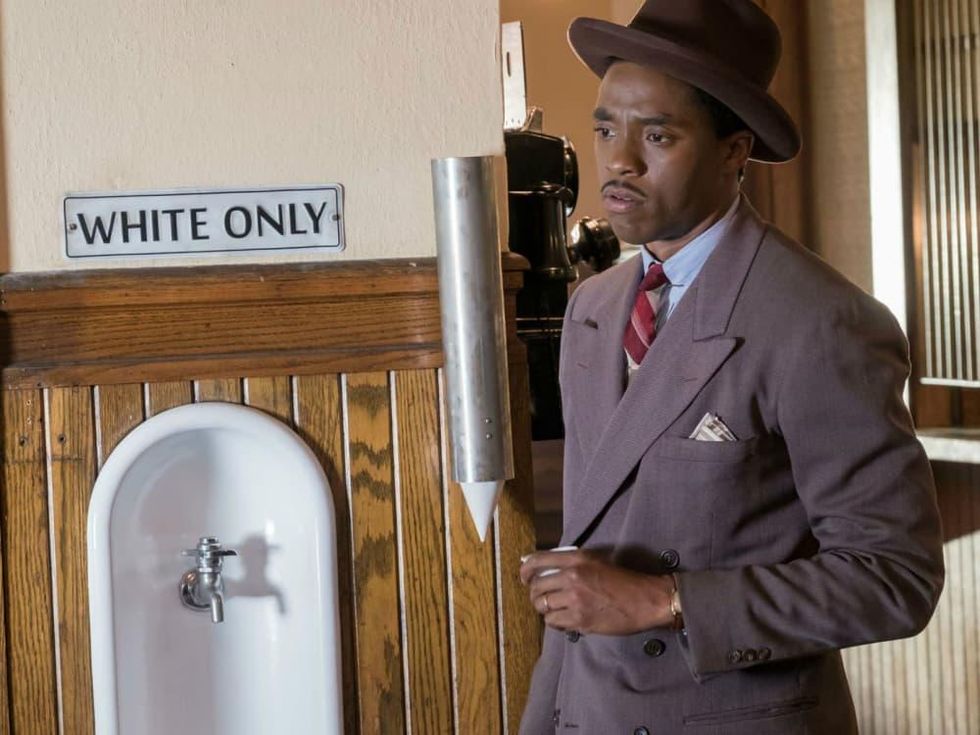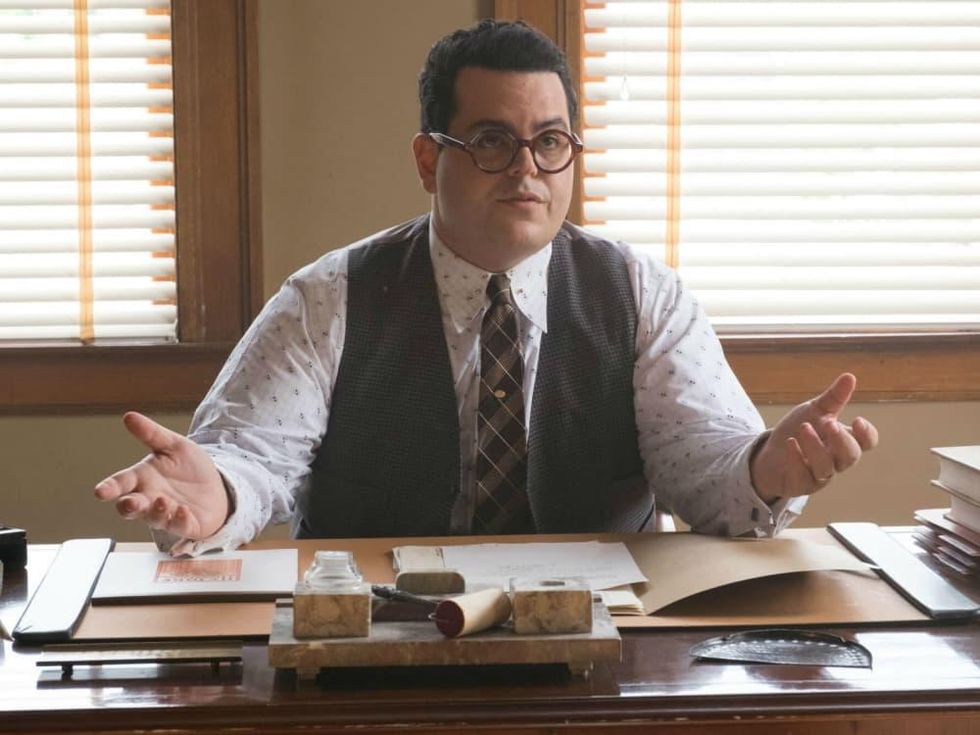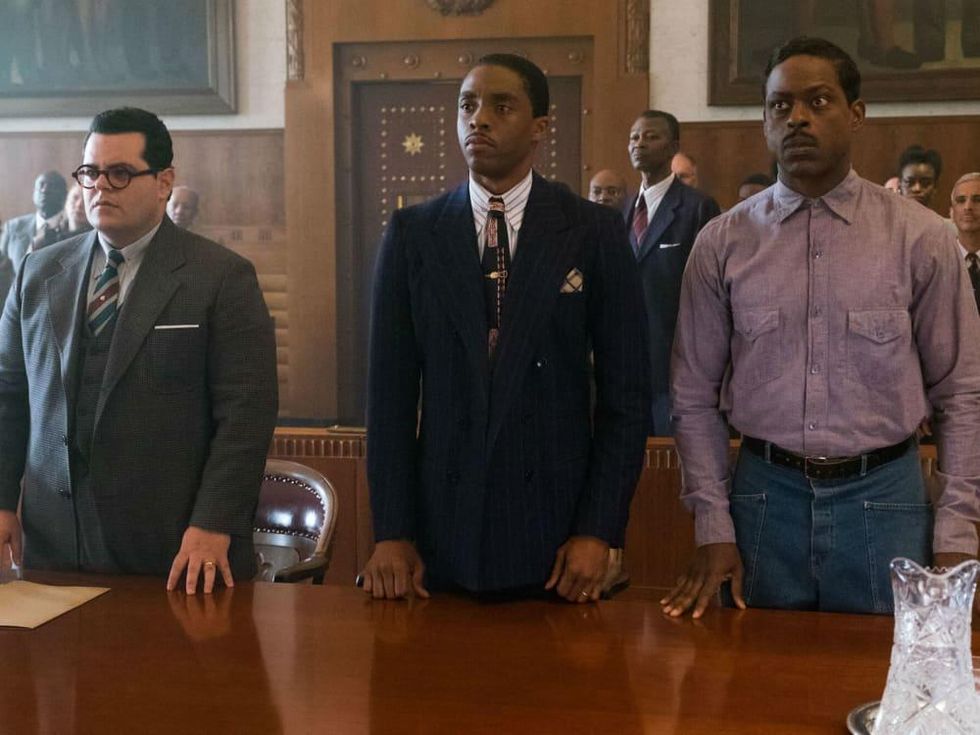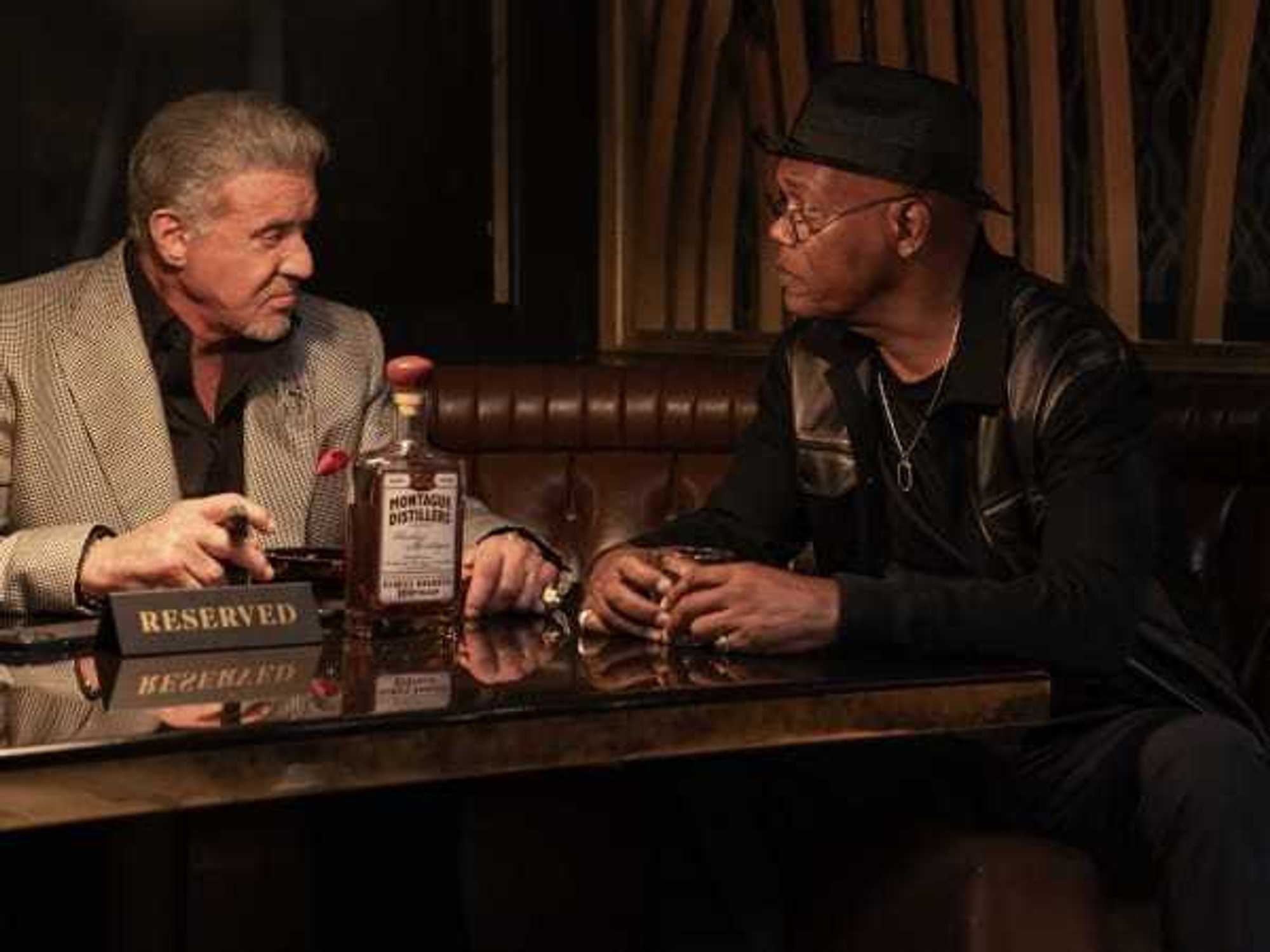Movie Review
Marshall stumbles in paying tribute to civil rights hero
If there is one civil rights icon who has not gotten his pop culture due, it’s former Supreme Court Justice Thurgood Marshall. He achieved remarkable success in bettering the lives of African-Americans in the 20th century — as a lawyer for the NAACP, with his landmark victory in Brown v. Board of Education, and with his historic appointment as the first black associate justice of the U.S. Supreme Court.
The early portion of his career is the focus of the new film Marshall. As the sole lawyer for the NAACP in 1941, Marshall (Chadwick Boseman) must crisscross the country, often at a moment’s notice, to defend black Americans who've been accused of crimes because of their race.
He finds such a case when Joseph Spell (Sterling K. Brown) is accused of raping Eleanor Strubing (Kate Hudson), the woman for whom he works, in Bridgeport, Connecticut. Unable to defend Spell without a local co-counsel, Marshall calls on the services of Sam Friedman (Josh Gad). Friedman is reluctant to join on, not least because such a high-profile case would cause trouble for him in his hometown.
The film, directed by Reginald Hudlin and written by the father-son team of Michael and Jacob Koskoff, follows the course of the trial and details the problems both Marshall and Friedman have in making sure justice is served. In fact, in a slightly odd twist for a movie called Marshall, both men’s stories are given equal weight.
Not to denigrate the work of Friedman, a Jewish man who would dedicate his life to civil rights, but it’s curious that the filmmakers would choose this particular case as an entrée into the life of Marshall. Perhaps without meaning to, they have set up Friedman as the classic “white savior,” lessening the impact of Marshall’s charisma and intelligence.
Matters aren’t helped by the relative lightness with which the material is treated. A jaunty, big band-era soundtrack plays throughout the film, giving the story the feel of a caper. This tone carries over to the storytelling, where the Koskoffs take care not to make the movie too challenging for viewers.
The approach is typified by the inelegant usage of profanity on multiple occasions. There are times when a good curse word is called for and can enhance a character, but the Koskoffs use them haphazardly and with no good reason. When Marshall drops not one but two f-bombs on Friedman during an argument, it not only doesn’t fit with the overall tone of the movie, it also cheapens the reputation of a man who deserved better.
In a weird twist of fate and/or unimaginative casting, Boseman has now played three men who had an outsized impact on the 20th century: Jackie Robinson, James Brown, and Thurgood Marshall. Boseman is a fine actor, and it’s hard to fault him for accepting the opportunities when they’re presented to him. But it’s also difficult to ignore the optics of the same man playing several significant African-Americans over the course of four years. There are many great black actors out there, and it would’ve been nice for another person to get the chance to shine, too.
Thurgood Marshall deserved a better biopic than Marshall, a trifle of a film that gives almost no sense of the giant influence he had on African-Americans and society as a whole.




